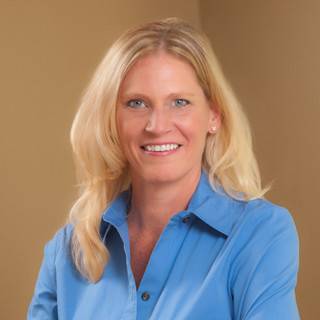Laurie Page: “Calling Should Ultimately Be Part of Your Touch Cadence”

An expert at developing strategic initiatives and tactical implementation plans, Laurie ensures the delivery of high quality, results-driven solutions to each of The Bridge Group’s clients. As Managing Partner, she leverages her colleagues’ experience in sales process methodology, measurement and metric development, project management, and recruiting to build high performing teams for clients.
A trusted advisor, coach, and mentor, Laurie uses her two decades of strategic sales management experience to build the capacity of The Bridge Group and each of its inside sales consultants. Those same skills are used to help her B2B technology clients build, expand, and optimize their inside sales teams.
Today, Laurie works with clients to conduct sales assessments, improve the effectiveness of sales teams, and assist sales managers in developing the skills required to manage and coach their teams.
See more about The Bridge Group. Connect with Laurie via LinkedIn.
Hello Laurie! Thanks a lot for your time! The Bridge Group has been a powerful supporter of sales development. However, every day, we see tons of blog posts and articles stating that outbound prospecting isn’t efficient anymore. Why do you think there’s such a big bias against this practice?
I think that people often express their opinions – regardless whether they’re right or wrong. They’re free to do it. Personally, I think that outbound prospecting still works and we have data that supports it—be it cold calling or the way you identify your prospects.
This said, I need to emphasize one important thing. There are numerous tools, technologies and information available today. And there are lots of outbound prospecting activities as well as potential mediums that you can use to engage with your potential buyers: phone calls, emails, video, voicemail, LinkedIn.
To manage all of it, to be efficient in conducting outbound prospecting and have conversions, Sales Development teams should have a plan and a proven process.
We can’t agree more, Laurie. In your opinion, what are the essentials of this process?
I think it’s knowing your buyers, leveraging information available for pre-call planning, and having a messaging that is crisp and resonates with your prospects.
It’s also important not to have generic messaging that could be so general and has no value.
You’ve been working for 17 years in The Bridge Group now. How have inside sales (IS) and related practices changed over this period of time?
Inside sales have grown up in terms of status, professionalism, and technologies that have been developed and made available. Companies have grown from infancy to IPO on the back of massively productive inside sales efforts.
As we continue, especially with many SaaS, inside sales is a viable channel for these organizations. It continues to be an exciting ride, but it certainly has grown up as a profession I think. That would probably be the biggest distinction as I see it.
In addition to that, we’ve seen a significant increase in companies that are adopting inside sale strategies and leveraging it compared to 20 years ago. We have the data showing the growth of IS versus field sales or other strategies.
Let’s talk about the Bridge Group SDR Report 2018. Amazing work! We enjoyed it! According to the report, the OTEs are on the rise after a significant decrease. In your opinion, what’s driving this trend? Will it continue?
It’s a difficult question. The OTEs did rise, but they’d been almost flat for nearly a decade prior to that. As you know, we’ve been studying sales development for over a decade now and we’ve issued several reports over this period.
So, the average SDR’s experience prior to hire was falling during that same time. Because of the demand for SDRs, the level of required experience went down. This, combined with a tight labor market for college-educated talent, made the OTEs rise again. And the trend will probably continue.
On the other hand, the OTEs depend heavily on the level of experience. There will be a difference in reimbursement between a recent college graduate and an SDR with 3+ years experience.
SDRs’ average tenure slightly increased after it hit quite a low in 2016. Do you think it’ll continue to grow considering the frustration of many companies around the post-promotion failures of 55% SDRs with less than 12 months experience? Or will it stay the same considering the reluctance of SDRs to stay in the role?
I don’t know if the tenure will rise, but I hope it will. And the reason I say that is because the ball is in the court of the companies that are building these strategies. Reps want to enter, and then get fast promotions and pay raises. However, it’s up to managers to figure out how to satisfy the SDRs and increase the average tenure.
We encourage our clients to do step promotions, as an option, meaning you can hire a junior and promote them to an associate. Level 1, level 2, level 3. So that is always a nice tactic.
And I strongly suggest keeping SDRs in a role longer, because, again – to your point – it’s proven that success rate (or failure rate – whichever one you’re looking at) will be affected if you move too quickly.
This tenure prolongation also benefits the company. It takes 3.5-4 months for an average SDR to ramp up. If they are promoted in 6-9 months, it means they were working for less than a year in full productivity.
Summing up, it’s a win-win strategy for both – a rep, because staying longer in a role means acquiring more skills to be an effective Account Executive. It’s also beneficial for a company, because they obtain full productivity out of an SDR.
That’s why I’d like to see the tenure increase, but once again – it’s up to the hiring managers and the companies to keep SDRs happy, because there will always be other organization willing to hire a rep from your firm on a quota-carrying position.

Well, many people will still view the SDR role as a launchpad into a sales career. Sales development is pretty stressful. It’s a frontline and you get tons of rejection and negative responses on a daily basis.
I agree. I think it’s one of the hardest positions.
Have you ever worked as an SDR?
Of course! I started my career in this role. It was called telemarketing at the time. I also worked for an SDR outsourced organization. So, I’m very familiar with the role, its challenges, the profile, and keeping reps engaged and excited in a role. Because, to your point, many companies also view the SDR role as a stepping point.
However, the role has changed over the years. And it is viewed now as a profession. As a result, SDRs can now have a diverse background to balance the desire of the team to move quickly in a profession.
I have experience in hiring all kinds of SDR profiles: junior SDRs who wanted to be quota-carrying in inside or field sales, as well as quota-carrying reps who wished to become SDRs. The latter still continued as quota-carrying, but for appointments, not the revenue. Some of them for example were successful field reps, but didn’t want to travel anymore.
What is the best compensation plan that will motivate SDRs to over achieve?
We always encourage our clients to make performance-based incentives. Here are some examples: per appointment, per extra number of meetings, quality of appointments, progression further into the pipeline, etc.
SDR is still a sales position, although their quota isn’t necessarily tied to the revenue, it’s based on some other activities. That’s why it should be compensated from the perspective that you can earn and overachieve as you can in a quota-carrying position.
To answer your question about the best compensation: I think it should be based on what the SDR objectives are. First, you should figure out the SDR strategy. Will your reps set an introductory appointment with little qualification? Or will they pass a super-qualified opportunity that meets a number of identified criteria?
In any case, it should be based on behavior, namely the objectives we ask our SDRs to do. For example, in case of the introductory meeting model, it’ll be based on the number of appointments. However, I also advise my clients on setting quality criteria.
A lot of my clients pay on closed business or revenue and we tend to suggest that that percentage should be between 10% and 20%, because it’s beyond the SDR’s impact.
So the bulk of their earning should be based on the activities that they’re controlling. They can control the number of meetings they’re setting as well as the quality—the correspondence of a prospect to the criteria that we’ve set.
We had a situation where we set around 100 appointments for one customer over the course of a year, and a salesperson never closed a single one of them. Where’s the problem? Is it the SDR? The ICP? Or the salesperson?
It could be both the ICP and the sales manager. It’s funny you said that, because I’m currently working with a client that has me looking at SDR organization, and similar to your description, the conversion rate to closed business is minimal.
And I would argue that while there are certain things that can be modified from an SDR’s perspective, we’re crazy if we don’t look into the rest of the sales process.
In this particular case with my client, they’re not qualifying much, they’re just setting super introductory appointments. So we can put some baseline level of qualification required.
So, if SDRs set enough meetings that fit the ICP, we ask our clients: “Does your sales organization have a skill to take an introductory meeting and create a vision, articulate value, qualify and drive it to close? Are they equipped? Do they have necessary skills?”
And from my experience, not all of the sales teams are capable of it because some might be used to receiving basically more qualified opportunities that are easier to close. However, in most companies, it’s an SDR organization that they start to look at once they have conversion problems.
Anyway, this is a very complex problem, and you need to look at everything. Who is your Ideal Customer Profile? What is the role of an SDR and the level of qualification? And you should look at your sales process.

Let’s talk about the future. In your opinion, what will be the main prospecting trends in 2019?
That’s a good question. I think that the labor market will continue to tighten. Also, the proliferation of tools and technologies will remain the trend. There are various mediums to engage with buyers. We’ve even done some studies with different channels (video, email, phone, texting), and different prospects prefer different mediums.
There’s one more trend—I’ve talked about it last year, but I think it’ll be in 2019. It’s the return of ROI—the pendulum swing from growth at any cost to profitable growth is accelerating. More organizations are now looking into ROI.
The Bridge Group SDR report provided several interesting stats. Combined together, they provide a somewhat confusing picture: the number of attempts to reach out to a prospect has grown, so has the quota for qualified opportunities. Meanwhile, the dials per day has decreased. However, somehow, more SDRs are at or above the quota. Why is this?
I think it’s because we now have many tools and can engage with buyers via many various mediums. So it’s not just literally dialing the phone. You can also engage via video, text messages, LinkedIn. The latter is one of the primary social networks.
It’s true that statistically, it takes more “touches” (it’s better to use this term rather than “attempts”) to get through to a prospect and convert, but they’re distributed across the channels above mentioned.
We always recommend to our clients to vary their mediums, their methods of outbound prospecting and reaching out to prospects. Some people respond positively on the touches in LinkedIn, while with others, phone calls work better. So it’s more efficient to use a mix.
Trish Bertuzzi, The President of The Bridge Group, supported Matt Amundson’s idea that phone-calling is better than email send-outs. What do you think?
It’s so funny. I was just on a call yesterday with an Inside Sales leader from Europe. And you know, Europe is a little bit different. They don’t tend to leverage phone-calling a lot. I told her:
“I agree with everything that you’ve said so far about leveraging pre-call planning, sharing relevant content with your prospects, nurturing them through various touches and different types of mediums. And the only thing I disagree with you on is not leveraging the phone.”
So, yes, I agree with Trish 1000% that calling is still a viable option and should ultimately be part of your touch cadence.
We always emphasize that you need a conversation with your buyers. And I recommend that your first touch should often be a voicemail. It shows that you’re a human and it’s not just an automated email. And thereby you can put your personality and passion into your message.
And it’s not just my opinion, because our research shows it too. So any time we look at anything, we like to look at actual data. And it’s so great, because due to all this technology available, we can now see open rates, A/B tests, and much more, and therefore support what we’re proposing and recommending reps to do.
And at the end of the day, touch cadences that include phone-calling outperform those that don’t. I personally believe that it’s because it allows you to be “human-to-human” with your passion, your voice, and enthusiasm.
That said, you do need the skills to leave an effective voicemail, where you’re not rambling or saying little. Your call opening needs to be very clear, closing on objection-handling, etc.

Speaking of “showing that you’re a human”… What do you think about software that fully automates the process of B2B buying-selling, when you don’t need salespeople anymore? You just go to a website, read all the specifications, then order and sign a contract online.
Your example sounds like ecommerce. The latter changed the industries a lot. And if your product is a widget, that model might be fine.
However, based on my experience with clients—we’ve sold very sophisticated products—I don’t see AI replacing salespeople in these cases. These are complex technologies and solutions that solve business problems. A lot of them can be customized.
Though AI could be a step in the process, it could never replace all the conversations around these solutions. It depends on what you’re selling.
In your opinion, if the OTE is the same, is it better to hire an SDR with no experience or a rep with 2+ years? On the one hand, a more experienced SDR will likely expect a quick promotion. On the other hand, they have more expertise and can bring more value.
Well, you first need to look at what the role is. But to answer your generic question of which one is better, I’d say some of each. You know, green SDRs bring a level of excitement to a sales team. Meanwhile experienced SDRs have this “been there, done that” perspective.
At the end of the day, I am a huge fan of diverse teams. I always encourage my clients to build such teams. I’ve worked with companies that hire only one profile (e.g., recent college grad). They might be successful, but I still strongly encourage that they diversify when it comes to hiring.
Every team member of the group will benefit from it. The senior will obtain excitement and enthusiasm, as well as mentoring skills. The junior SDR will get experience in business documents, strategies, and tactics. So it’s a win-win situation.
For complex science and technology-related products (e.g., genome sequencing), would you rather hire an SDR with a degree in STEM or a person with experience in sales?
I’m not absolutely for one or the other. However, I think the person with the sales experience can learn some basics of a complex technological product. Meanwhile, though some of sales skills also could be learned and enhanced, a good SDR needs to have personality and some of the attributes of a successful salesperson (with number one being willingness and desire to do it).
So, to answer your question, I wouldn’t necessarily take someone who’s super technical but doesn’t have conversational skills or desire to do the role because he/she would struggle.
For example, if I’m an engineer and I never want to talk over the phone or have a conversation, and all I want is to look into a computer screen, no matter how knowledgeable I am at engineering, I wouldn’t succeed as an SDR or a salesperson.
Most of my clients are B2B high-tech organizations that sell technology. When I was hiring people for these projects, I always looked at their technical aptitude and the ability to learn. I searched for people whom I could teach technology.
As an inside sales rep or an SDR, you don’t need to know how your product was built or to be able to build it. What you really need to know is how, through conversation and various mediums, to identify the business drivers and how to position the technology.
Right, you just need to know how to bring value.
Exactly. It’s all about the value and I say this to SDR teams all the time:
“Technology is here to solve a business problem. And it’s our role to engage with our prospects, identify what that business problem is so that we can appropriately position our solution to them and add value throughout that process.
And that value can come in a million different ways—through conversation, your expertise, content, resources of the company, anything.”

In 2013, Xactly provided interesting research stating that 70% of female sales reps met their quota compared to 67% of males in the same position. Do you think the gap is circumstantial or that women tend to be better at sales, taking into account that modern sales requires the ability to generate value rather than apply aggressive and pushy tactics?
I wouldn’t say women are better. Both women and men are equally capable of selling. Meanwhile, I agree that women possess a number of the attributes and social skills that any good salesperson needs.
I’ve always thought that we’re good at selling because we’re good listeners. And that’s a challenge a lot of reps have. Those who have mastered the art of listening are successful in sales.
I always ask: “What’s in it for prospect?” I think a lot of our messaging and our communication is about our own hidden agenda:
- “I want the time on your calender”
- “I want to tell you everything about my product”
- “I want this.”
And I always encourage my teams to think about it from a prospect’s perspective, to ask open-ended questions and to listen.
I recently read a blog post stating that prospects respond much more positively when you ask questions after they’ve articulated something. This might sound silly, but that’s what prospects are feeling.
So, I wouldn’t say a blanket statement that women are better. What I say is that they tend to have powerful listening capabilities and to be empathetic. And you know that emotional intelligence is important from a sales perspective.
The days are over when we could call a prospect and go in with just our own agenda. Some sales reps still do this, and come in with that brute force of “I’m going to tell you everything about my product and how wonderful my company is.” They won’t succeed.
Prospecting is much more conversational these days. It’s all about engagement. And I even tell my reps sometimes: “If you go in looking for the sale, you won’t get it. You should go in with a proposition to have a talk and then have an engaging conversation to determine if it’s a fit.”
I think that women are good at it. They’re sociable and collaborative. And that’s one of the reasons they do well. I also think we have a good level of organization. Successful women have always been very methodical and organized.

I can’t agree more. Some of our best SDRs are women. Your career and your interview can be really inspirational for them! What advantages do women possess that can help them succeed in sales?
I don’t know if I can outline something specific to succeed in sales. I personally always knew that I would go to sales. And I think it’s an awesome profession. You get to engage with people and help them solve their problems.
And—like we talked about in the beginning of this conversation—it has certainly evolved. The level of technology and professionalism has increased and we’ve seen many tools. Today, it’s a proven profession and it continues growing.
Companies recognize the importance of sales. Furthermore, I hear more organizations wanting women on their teams. They ask me how to get one. So I think all of that is great.
When did you know that you wanted to be a salesperson? How do people get into sales?
It’s funny—because my father was in sales. So maybe it’s because I was exposed to it.
And the reason I’m successful in my profession is that I ask a lot of questions—a needed skill for sales. They’re not just questions to “qualify” somebody. I’m truly interested. It could be husband or wife and I’m asking them for examples of what they do for their career. I’ve always been that way.
And today, it’s great that there are so many schools that are offering sales as a profession—that was unheard of when I was in college. I think there will be more schools and programs like this. I don’t know how many of them are now in the US. However, I live in Boston, and there are two local schools (Bentley and Bryant) that have super successful programs.
If you think about it, prior to these degrees and sales courses at Universities, people would enter a sales career without actually studying and training. For example, before becoming a marketer or an accountant, you learn marketing and accounting, respectively. But it hadn’t been the case for sales for a long time.
I believe there are personality traits that are essential to becoming a salesperson, but it’s great that we can now offer options for learning necessary skills. I hope it’ll continue to grow.

Do you think the art of asking the right questions is the most important in sales?
No. Maybe not the most important. However, the questioning is all about engaging with buyers. And questions are a way to engage. I think that’s the most important as well as putting yourself into your prospect’s shoes.
I tell SDRs all the time: “Guys, read this email. Would you respond to it? Think what your buyers are doing—they’re getting 200+ emails per day. Think about it from their perspective.”
So, just as I said in the beginning of this interview—knowing and understanding your buyer is important. It will help you create an engaging conversation, and asking questions and listening will enhance this engagement.
A Few (Related) Sales Posts
 Read full post: The Bridge Group 2018 SDR Report’s Must-Know Takeaways for CEOs
Read full post: The Bridge Group 2018 SDR Report’s Must-Know Takeaways for CEOs
The Bridge Group 2018 SDR Report’s Must-Know Takeaways for CEOs
 Read full post: The Complete Buyer’s Guide for Outbound Managed Services
Read full post: The Complete Buyer’s Guide for Outbound Managed Services
The Complete Buyer’s Guide for Outbound Managed Services
 Featured image: Sales Development Representative Daily Activities. SDR Processes and Workflow - Read full post: A Day in the Life: SDR
Featured image: Sales Development Representative Daily Activities. SDR Processes and Workflow - Read full post: A Day in the Life: SDR
